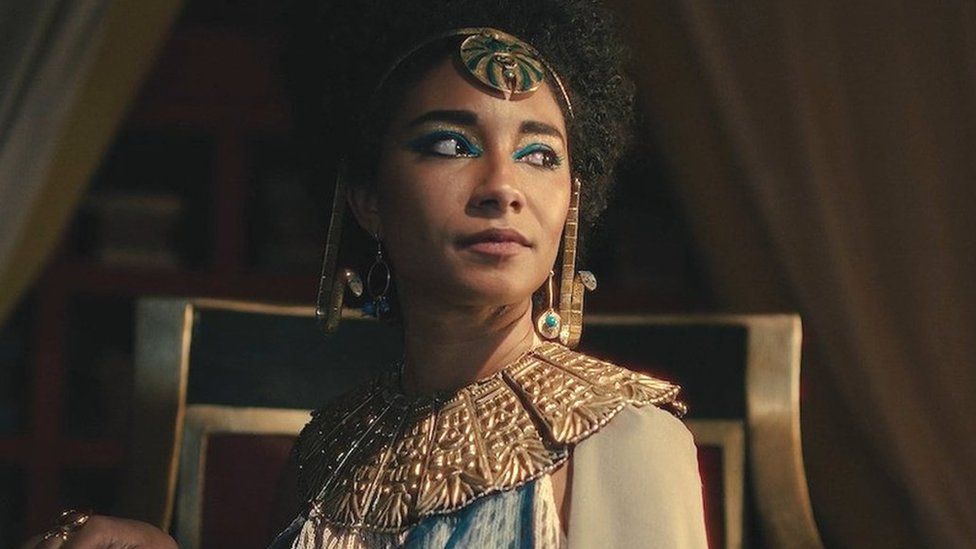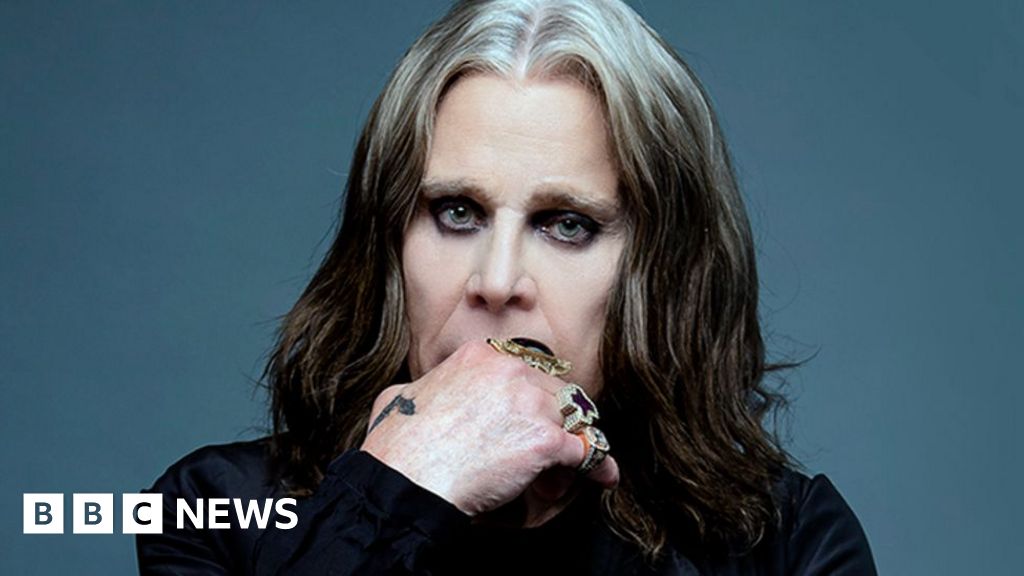ARTICLE AD BOX
 Image source, Netflix
Image source, Netflix
African Queens: Queen Cleopatra features British actress Adele James as the Egyptian ruler
A Netflix docudrama series that depicts Queen Cleopatra VII as a black African has sparked controversy in Egypt.
A lawyer filed a suit with prosecutors that accuses African Queens: Queen Cleopatra of violating media laws, claiming it aims to "distort and erase the Egyptian identity".
A top archaeologist insisted Cleopatra was "light-skinned, not black".
British actress Adele James, who plays her, told critics: "If you don't like the casting, don't watch the show."
She made the comment in a Twitter post that included screengrabs of abusive comments that included racist slurs.
Cleopatra was born in the Egyptian city of Alexandria in 69 BC and became the last queen of a Greek-speaking dynasty founded by Alexander the Great's Macedonian general Ptolemy.
She succeeded her father Ptolemy XII in 51 BC and ruled until her death in 30 BC. Afterwards, Egypt fell under Roman domination.
The identity of Cleopatra's mother is not known, and historians say it is possible that she, or any other female ancestor, was an indigenous Egyptian or from elsewhere in Africa.
Netflix's companion website Tudum reported in February that the choice to cast Adele James, who is of mixed race, as Cleopatra in its new documentary series was "a nod to the centuries-long conversation about the ruler's race".
Jada Pinkett Smith, the American actress who was executive producer and narrator, was meanwhile quoted as saying: "We don't often get to see or hear stories about black queens, and that was really important for me, as well as for my daughter, and just for my community to be able to know those stories because there are tons of them!"
But when the trailer was released last week many Egyptians condemned the depiction of Cleopatra.
This YouTube post cannot be displayed in your browser. Please enable Javascript or try a different browser.View original video on YouTube
The BBC is not responsible for the content of external sites. YouTube content may contain adverts.
Allow YouTube content?
This article contains content provided by Google YouTube. We ask for your permission before anything is loaded, as they may be using cookies and other technologies. You may want to read Google’s cookie policy, external and privacy policy, external before accepting. To view this content choose ‘accept and continue’.
The BBC is not responsible for the content of external sites. YouTube content may contain adverts.
Zahi Hawass, a prominent Egyptologist and former antiquities minister, told the al-Masry al-Youm newspaper: "This is completely fake. Cleopatra was Greek, meaning that she was light-skinned, not black."
Mr Hawass said the only rulers of Egypt known to have been black were the Kushite kings of the 25th Dynasty (747-656 BC).
"Netflix is trying to provoke confusion by spreading false and deceptive facts that the origin of the Egyptian civilisation is black," he added and called on Egyptians to take a stand against the streaming giant.
On Sunday, lawyer Mahmoud al-Semary filed a complaint with the public prosecutor demanding that he take "the necessary legal measures" and block access to Netflix's services in Egypt.
He alleged that the series included visual material and content that violated Egypt's media laws and accused Netflix of trying to "promote the Afrocentric thinking... which includes slogans and writings aimed at distorting and erasing the Egyptian identity".
Three years ago, plans for a movie about Cleopatra starring the Israeli actress Gal Gadot triggered a heated debate on social media, with some people insisting that the role should instead go to an Arab or African actress.
Gadot subsequently defended the casting decision, saying: "We were looking for a Macedonian actress that could fit Cleopatra. She wasn't there, and I was very passionate about Cleopatra."

 2 years ago
68
2 years ago
68








 English (US) ·
English (US) ·